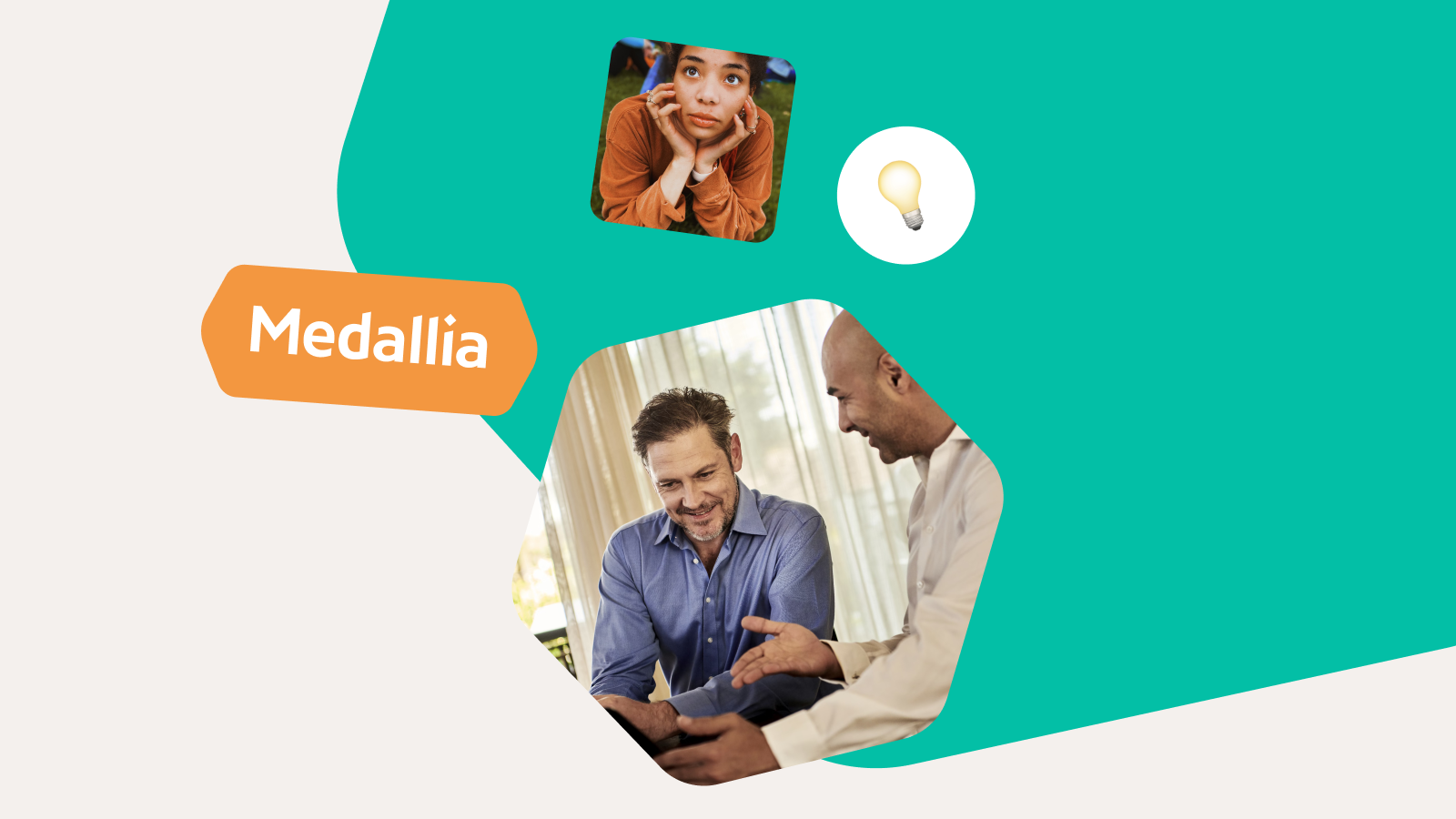From Healthcare to Hospitality: What Our Latest Research Says About Winning Customers for Life in Your Industry
November 14, 2024
Market Research
A new Medallia study reveals the latest customer loyalty research findings and what they mean for brands across healthcare, financial services, hospitality, and more.
We all know brand loyalty is the holy grail for every industry — but getting there is anything but simple. Sure, general trends like quick response times and smarter personalization make good starting points, but if you really want to crack the code, studying the nuances of your industry is key. Every sector has its own quirks when it comes to loyalty.
According to Medallia Market Research’s latest report, The State of Brand Loyalty, only 24% of customers consider themselves “very loyal” to a brand. Surprised? You’re not alone. Customer acquisition is no small feat — it can cost up to $377 per customer in some retail industries, according to research from Shopify.
So why is customer loyalty such an elusive target? Medallia’s team of experts dove into the details, unpacking some key insights into what matters most for specific industries. The most important takeaway is that customer loyalty is ultimately a moving target. Preferences shift, expectations evolve, and the ways people interact with brands are always changing. CX needs to keep up or risk becoming irrelevant.
Loyalty in healthcare requires trust and seamless experiences
The healthcare vertical faces unique challenges when it comes to building customer loyalty. Patients trust medical providers with their well-being, making the patient-provider relationship deeply personal and sensitive. Our Medallia research found that one in eight customers would abandon a company after just one poor encounter, so the stakes are high for healthcare providers to create a reliable experience patients can count on.
1. Ensure consistency across touchpoints
“In healthcare, a loss of trust can lead patients to delay care, disengage from treatment, or even switch providers, which can have real consequences on health outcomes,” notes Amber Maraccini, Medallia’s Vice President and Executive Advisor for Healthcare. Every interaction, from initial scheduling to follow-up care, should reinforce reliability and trustworthiness if you hope to retain the patient.
2. Prioritize patient feedback
When it comes to a patient’s health, timing matters — both to their quality of care and their impression of your organization. Having a team focused on dealing with gathering and analyzing feedback can make or break the relationship. “Closing the loop on customer feedback shows that you are listening and that you care about patient opinions,” explains Maraccini. Quickly dealing with patient concerns helps maintain compliance and quality of care, so it’s truly a win-win.
3. Build a holistic system that supports patients
As long-term wellness is increasingly emphasized, it’s never been more important for organizations to design systems to support their patients over the long haul. Maraccini notes that treating the healthcare experience as a holistic one can foster trust, loyalty, and improved health outcomes. From scheduling to viewing medical records to following up after a procedure, patients should be able to quickly access important information and request care in a straightforward way.
Public sector loyalty comes through genuine connections
In the public sector, loyalty takes on a unique dimension since end users are voters, taxpayers, and stakeholders relying on government agencies for essential services. Public agencies are meant to serve citizens and residents, who will illustrate their loyalty at the ballot box. Both groups stand to lose in a big way if public agencies don’t thoughtfully design and execute their service offerings.
1. Operationalize customer experience
Lee Becker, Medallia’s Senior Vice President and Executive Advisor for the Public Sector and Healthcare, emphasizes the importance of “operationalizing customer experience” and “treating every interaction as a moment to deliver value.” This citizen-centric approach is incredibly important for building trust and ensuring the effectiveness of public services.
2. Invest in employee experience
It can be challenging to provide the best experience to the public when dealing with funding limitations or legacy software that is slow or ineffective. “Customers are 2.7 times more likely to feel loyal when they believe an organization cares about its employees,” Becker explains. This is equally relevant for government agencies, where “empowered and supported employees are better equipped to serve the public,” building loyalty through every interaction. Elected officials and decision-makers in the public sector should try to supply employees with every available resource so they can provide better service.
3. Use real-time data and feedback loops
Becker highlights the importance of real-time data in aligning service delivery with citizen demands. Government agencies can keep a finger on the pulse of the public with requests for continuous feedback and responsive actions. Many agencies are also increasingly turning to AI to enhance both customer and employee experiences, particularly where parsing large amounts of data is needed.
Hospitality and travel must offer true value to win loyalty
In the hospitality space, loyalty programs are essential for driving repeat stays — but today, points and perks aren’t usually enough on their own. Guests expect impeccable, personalized experiences that make them feel genuinely valued. Brands that deliver exceptional value tend to win customers for life, especially given the limited time and money customers have for vacations or nights out.
1. Enhance loyalty programs with personalization
“About three in four (78%) of hotel customers say rewards programs influence their brand choice, according to Medallia Market Research,” says Geoffrey Ryskamp, Vice President and Executive Advisor for Hospitality at Medallia. “But the real opportunity lies in using technology to personalize these programs, making them feel meaningful to each guest.”
2. Prioritize customer feedback for instantaneous recovery
“Customers in loyalty programs expect more,” Ryskamp continues. Hotels that close the feedback loop in real time can recover from any potential negative experience, demonstrating a commitment to guest satisfaction and reinforcing loyalty.
3. Anticipate needs with technology
“Understanding and acting on customer signals can unlock deeper loyalty,” notes Ryskamp. By anticipating guest needs — like preferred amenities or dining options — hospitality brands can create memorable experiences that make guests feel valued, ultimately driving loyalty.
Financial services organizations earn primacy through trust and tailored offerings
For the financial services vertical, many institutions seek to become the go-to for all a customer’s financial needs. Achieving this level of trust takes a long-term commitment to transparency, security, and anticipating each customer’s needs so you’re available to help them when they are ready for you.
1. Build relationships through trust
“Primacy reflects a bank’s competitive strength,” explains Judy Bloch, Vice President and Executive Advisor for Financial Services at Medallia. By gaining a customer’s trust, they’re more likely to turn to you for all of their banking, lending, and credit needs.
How to gain that trust? When customers feel heard and understood, they’re more likely to stick around. It’s all about creating connections and showing clients that their financial institution truly cares about their unique circumstances. That way, even if a customer isn’t in the market for a new product today, they’ll remember your brand when they’re ready to make a move.
2. Offer personalized financial solutions
Personalized solutions make a difference when it comes to building loyalty. “Brands need to do more than just satisfy customers; they need to give them solid reasons to come back,” explains Bloch. Financial providers strengthen that connection when they offer products and services relevant to clients’ lives.
3. Leverage data to understand needs
“Using data insights allows financial institutions to anticipate customer needs,” adds Bloch. By leveraging information to tailor offerings according to each customer’s preferences and behaviors, banks can deliver a more customized experience that is truly helpful.
Telecom and media loyalty requires personalization and real-time feedback
In telecom and media, customer loyalty hinges on creating memorable, personalized experiences that really resonate with consumers. They expect more than just a standard interaction; they want providers to understand their unique preferences and usage. This means going beyond generic promotions and recognizing that each customer is an individual with distinct needs.
1. Use data to drive personalization
“The State of Brand Loyalty study reveals that 84% of customers see personalized experiences as essential as the product itself,” says Kim Palenik, Vice President and Executive Advisor for Telcom and Media at Medallia. When brands focus on personalization, they create memorable moments that resonate with customers, making them feel understood and appreciated.
2. Recover quickly from negative experiences
To keep customers happy, every interaction needs to hit the mark. “Medallia researchers have found that about three in four (72%) of customers would be done forever after four or fewer bad experiences,” Palenik points out. Using real-time feedback can help brands spot problems early on, making sure customers stay satisfied and engaged before it’s too late.
Loyalty is about personalization, proactivity, and trust
No matter the industry, customer loyalty often comes down to personalized experiences, proactive service, and building trust. You need to understand what makes your customers tick to earn repeat business, get positive word-of-mouth recommendations, and boost revenue. It’s all about delivering exceptional experiences every time.
Want to dive deeper into our customer loyalty research and learn how to improve your company’s approach? Check out Medallia Market Research’s full State of Brand Loyalty report.






